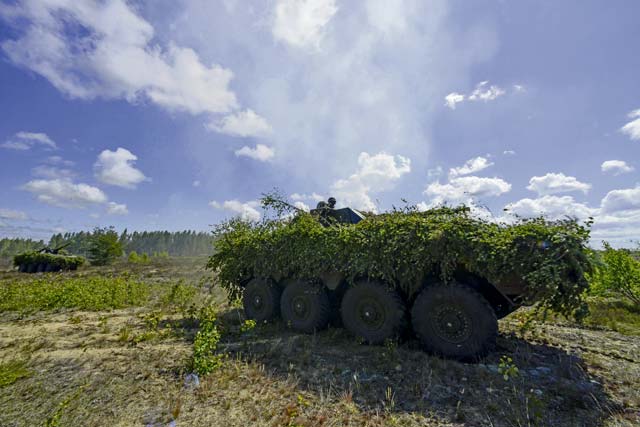
RIGA, Latvia — U.S. Airmen joined more than 4,500 military members from 13 different NATO countries as they kicked off exercise Saber Strike ’16 June 12.
Saber Strike is a long-standing, U.S. Joint Chiefs of Staff-directed, U.S. Army Europe-led cooperative-training exercise, which has been conducted annually since 2010. This year’s exercise focused on promoting interoperability with allies and regional partners and improving joint-operational capability in a variety of missions to prepare the participating nations and units for the future.
The exercise featured the integration of close air support with allied and partnered nation ground forces as well as the testing of air deployment of forces and equipment. The exercise was conducted through June 21.
Capt. Douglas Mabe, 37th Airlift Squadron pilot and SbS16 C-130 mission commander, explained the importance of training for real-world situations.
“Participating in Saber Strike allows the U.S. to accurately simulate supporting our NATO partners in a large-scale conflict spanning several countries,” Mabe said. “As tactical airlifters, we must always be prepared to execute any of our various mission sets and capabilities at a moment’s notice, anywhere in the world at any time. This exercise will test our ability to successfully communicate across multiple branches of the military from various countries in order to achieve our mutual objectives and defeat the opposing force.”
This year’s exercise included participation from U.S. Air Forces in Europe, U.S. Marine Corps Forces Europe and Africa, USAREUR, the U.S. National Guard and Air National Guard and military forces from Denmark, Estonia, Finland, France, Germany, Latvia, Lithuania, Luxembourg, Norway, Poland, Slovenia and the United Kingdom.
Although not a NATO exercise, SbS16 trained NATO allies and partners to be ready with a credible capability to assure, deter and respond quickly and effectively as a team to threats throughout the region.
“It’s important to understand we are going to train like we fight, and that means a total-force fight,” said Maj. Gen. Mark Loeben, Headquarters U.S. European Command J-7 director of exercises and assessments. “We are getting a lot of U.S.-only joint-training objectives accomplished in this exercise, but at the same time, we’re building the partnerships with our NATO allies. We build relationships, but we also assure our partners of the U.S. commitment to the NATO alliance.”
By conducting training that focuses on a wide variety of scenarios, Saber Strike ensures that participating nations are trained and proficient in their ability to shoot, move and communicate together.


